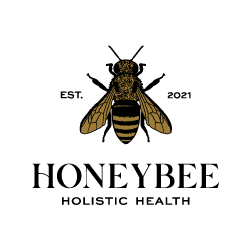
In this comprehensive guide, we will explore the causes, symptoms, risk factors, and treatment options for upper respiratory infections. We will also provide helpful tips and home remedies to alleviate symptoms and promote a speedy recovery. Let’s dive in!
Understanding Upper Respiratory Infections
Upper respiratory infections, commonly known as the common cold, are contagious viral infections that primarily affect the nose, throat, and sometimes the sinuses. Rhinoviruses are the most common culprits behind these infections, although other viruses like coronaviruses and adenoviruses can also be responsible.
URIs are easily transmitted from person to person through respiratory droplets released when an infected individual coughs, sneezes, or talks in close proximity to others. The virus can also be contracted by touching contaminated surfaces and then touching the nose or mouth.
Symptoms of Upper Respiratory Infections
The symptoms of upper respiratory infections usually develop gradually and can vary from mild to severe. Common symptoms include:
-
Runny or stuffy nose: The nasal passages become congested, leading to a runny or stuffy nose.
-
Sneezing: Frequent bouts of sneezing are a common symptom of URIs.
-
Cough: A persistent dry or productive cough is often present during an upper respiratory infection.
-
Sore throat: The throat may feel scratchy, irritated, or painful.
-
Fatigue: Generalized fatigue and malaise are common during the course of an URI.
-
Headache: Some individuals may experience mild to moderate headaches.
It’s important to note that these symptoms can overlap with those of other respiratory illnesses, such as the flu or allergies. If you are unsure about the cause of your symptoms, it is best to consult with a healthcare professional for an accurate diagnosis.
Risk Factors for Upper Respiratory Infections
Certain factors can increase the risk of developing upper respiratory infections. These include:
-
Age: Children, especially those under the age of 6, are more susceptible to URIs due to their developing immune systems and close proximity in school or daycare settings.
-
Weakened immune system: Individuals with weakened immune systems, such as those with chronic illnesses or undergoing immunosuppressive treatments, are at higher risk of developing URIs.
-
Season: URIs are more common during the fall and winter months when people spend more time indoors and in close proximity to others.
-
Exposure to infected individuals: Being in close contact with someone who has an upper respiratory infection increases the likelihood of transmission.
-
Poor hygiene practices: Failing to practice good hygiene, such as regular handwashing, can increase the risk of contracting a URI.
By being aware of these risk factors, you can take precautionary measures to reduce your chances of developing an upper respiratory infection.
Treatment Options for Upper Respiratory Infections
Typically, upper respiratory infections do not require specific medical treatment and can be managed at home. The primary focus of treatment is to alleviate symptoms and support the body’s natural healing process. Here are some treatment options to consider:
Rest and Hydration
Resting and staying hydrated are essential for your body to recover from an upper respiratory infection. Make sure to drink plenty of fluids, such as water, herbal teas, and clear broths, to stay hydrated. Avoid alcohol and caffeinated beverages as they can contribute to dehydration.
Over-the-Counter Medications
Over-the-counter (OTC) medications can help relieve specific symptoms of URIs. However, it is important to read and follow the instructions on the label and consult with a healthcare professional if you have any underlying medical conditions or are taking other medications. Some common OTC medications for URIs include:
-
-
Pain relievers: Acetaminophen or nonsteroidal anti-inflammatory drugs (NSAIDs) like ibuprofen can help alleviate sore throat, fever, and body aches.
-
Decongestants: Nasal decongestants can temporarily relieve nasal congestion, but they should not be used for more than a few days to avoid rebound congestion.
-
Cough suppressants: Cough suppressants can provide temporary relief from a persistent cough.
-
Always follow the recommended dosage and consult a healthcare professional if symptoms worsen or persist for an extended period.
Saline Nasal Irrigation
Saline nasal irrigation can help relieve nasal congestion and clear out excess mucus. You can use a saline nasal spray or prepare a saline solution at home using distilled or boiled water and non-iodized salt. Gently irrigate each nostril with the solution to promote nasal drainage.
Humidifier or Steam Inhalation
Using a humidifier or inhaling steam can help soothe irritated nasal passages and ease congestion. Adding moisture to the air can also reduce dryness, especially during the winter months when indoor heating can exacerbate symptoms. Ensure proper cleaning of humidifiers to prevent the growth of bacteria or mold.
Warm Saltwater Gargles
Gargling with warm saltwater can provide relief for a sore throat. Mix half a teaspoon of salt in a glass of warm water and gargle for 30 seconds before spitting it out. Repeat several times a day to reduce throat inflammation and alleviate discomfort.
Herbal Remedies
Certain herbal remedies may offer relief from upper respiratory infection symptoms. Echinacea, elderberry, and ginger are some examples of herbs known for their immune-boosting properties. However, it is important to consult with a healthcare professional before using herbal remedies, especially if you have any underlying medical conditions or are taking other medications.
Good Hygiene Practices
Practicing good hygiene is crucial to prevent the spread of upper respiratory infections. Encourage frequent handwashing with soap and water for at least 20 seconds, especially after coughing, sneezing, or touching potentially contaminated surfaces. Avoid close contact with individuals who are sick, and cover your mouth and nose with a tissue or your elbow when coughing or sneezing.
Avoid Smoking and Secondhand Smoke
Smoking and exposure to secondhand smoke can worsen respiratory symptoms and prolong recovery time. If you are a smoker, consider quitting or at least avoid smoking during the course of the infection. Additionally, ensure that your living environment is smoke-free to protect yourself and others from harmful smoke particles.
Adequate Rest and Sleep
Allowing your body enough time to rest and recover is essential for a speedy recovery from an upper respiratory infection. Make sure to get adequate sleep and avoid strenuous activities that may further weaken your immune system.
Seek Medical Attention if Needed
While most upper respiratory infections resolve on their own, there are instances where medical attention may be necessary. Seek medical care if:
-
-
Symptoms worsen or do not improve after a week or two.
-
You develop severe or persistent symptoms, such as difficulty breathing, chest pain, or high fever.
-
You have underlying medical conditions that may complicate the course of the infection.
-
A healthcare professional can provide a proper diagnosis and recommend appropriate treatment options if necessary.
Prevention Tips for Upper Respiratory Infections
Preventing upper respiratory infections is crucial in reducing the risk of transmission and maintaining overall respiratory health. Here are some preventive measures you can take:
-
Wash your hands: Regularly and thoroughly wash your hands with soap and water for at least 20 seconds, especially after being in public spaces or coming into contact with potentially contaminated surfaces.
-
Avoid close contact: Minimize close contact with individuals who are sick, especially if they have symptoms of a respiratory infection.
-
Practice respiratory hygiene: Cover your mouth and nose with a tissue or your elbow when coughing or sneezing. Dispose of used tissues properly and wash your hands immediately afterward.
-
Maintain a healthy lifestyle: Adopting a healthy lifestyle, including regular exercise, a balanced diet, and adequate sleep, can strengthen your immune system and reduce the risk of infections.
-
Stay up to date with vaccinations: Vaccinations, such as the flu vaccine, can help protect against specific viral infections that can cause upper respiratory symptoms.
-
Keep your environment clean: Regularly clean and disinfect frequently touched surfaces, such as doorknobs, light switches, and electronic devices.
By implementing these preventive measures, you can significantly reduce your risk of contracting or spreading upper respiratory infections.
Contact Us (727-312-1262) To Learn More!
—
 About Honeybee Holistic Health
About Honeybee Holistic Health
Honeybee Holistic Health strongly believes in a holistic, organic, and integrative model of care where the patient is the center of all decisions. Our approach is to empower each one of our patients to heal themselves and to make informed, autonomous decisions in their plan of care. This is approached by integrating modern medicine with well-studied homeopathic treatment options when appropriate.

 About Honeybee Holistic Health
About Honeybee Holistic Health